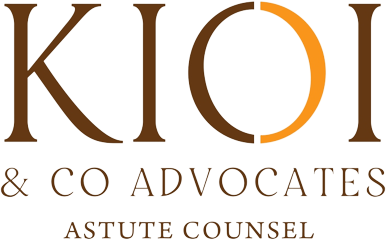Succession planning in simple terms involves creating a plan for someone to either own or run your business after you die, retire or become disabled. In simple terms, succession is the process of passing control of the business to others.
Succession planning can be defined as the process of identifying and preparing suitable employees through mentoring, training and job rotation, to replace key players within an organization as those key players leave their positions for whatever reasons such as retirement, advancement and attrition. Donnelley affirms that succession planning is the process of identifying and developing internal people with the potential to fill key leadership positions in the company. Succession planning is therefore an inevitable event in the life of any business. According to Murangiri, the mode and the strategies employed to facilitate the trans-generational transition of ownership and control have been observed to have a significant influence on the survival and performance of family businesses.
The practice of succession planning is considered an on-going dynamic process that identifies, assesses, and develops talent to ensure that an organization can keep up with the changes in both the workplace and marketplace respectively. Succession planning is a key element of an effective strategy for managing talent and ensuring that an organization achieves its future goals.
STRATEGIES THAT ONE HAS TO PUT IN PLACE IN SUCCESSION PLANNING
- Write down your plans and vision for your organisation
- Work on your business including setting up various growth strategies and systems.
- You must have a stable foundation that allows the business to handle change
- You must have an employment contracts and policies
- You must ensure statutory compliance
- Ensure that the company has paid all its taxes
- Ensure that the company has taken up an insurance policy
- Have proper terms and conditions that cover all operations in the organisation.
When a business owner dies, what happens next depends on the type of business, whether there is a business continuity plan or other type of succession plan, and whether there is a will. In most cases without a will, the remaining assets of ownership are distributed according to state law.how succession plan works in the following organisations;
What happens to an LLC when the owner dies
LLCs must have an operating agreement, which outlines the protocol that will be followed if an LLC shareholder passes away, becomes disabled or wishes to leave the company for his own reasons. If the agreement permits the LLC to continue after an owner’s death, the surviving owners can choose to purchase the heirs’ shares, continue to share in profits and losses with the personal representatives of the deceased but not in management or voting, or add the heir or personal representatives of the deceased as a shareholder with both financial and managerial authority. If a single-member LLC owner passes away, the operating agreement will determine what happens next. Unless there are provisions for the LLC to continue after the owner’s death, it will cease to exist. If you are the sole heir and there are no other surviving owners, you can choose to either run the business or close it in accordance with state law.
If the LLC Shareholder wishes to leave the business the operating agreement should clearly state what should happen in such an instance.
Business Continuity: The Sole Shareholder-Director
The COVID-19 crisis has presented us with many difficult lessons to learn. The pandemic has had a devastating impact, resulting in significant human losses. Corporate organisations have witnessed several cases where a lack of a succession plan has resulted in unintended, grave consequences for a deceased person’s company and heirs.
Despite being a legal entity with perpetual succession, a company can only function through its directors. Therefore, if the sole director of a company passes away, the company becomes incapacitated until a replacement director is appointed. If the sole director is also the sole shareholder, there may not be anyone to immediately appoint a new director since directors are usually appointed by shareholders.
According to the Companies Act, a person ceases to be a director upon their death. When a natural person’s shares become part of their deceased estate upon their passing, the estate is reported to the High Court. The Court appoints an executor to manage the deceased’s estate. The executor is either appointed by the deceased in their will or nominated by the heirs after their passing, subject to confirmation by the Court. The Court then issues a letter of grant of representation authorizing the executor to act in that capacity. Unfortunately, there can be frustrating delays in appointing executors/administrators by the Court, often taking more than three months.
If the MOI of the company does not address the death of the sole shareholder-director, the company will not be able to conduct business. In such a case, banks will usually freeze the company’s bank accounts. The company will be unable to pay salaries or operational costs until a replacement director is appointed.
Recommendations:
1. Seek legal and tax advice to create a clear succession plan to ensure the company continues to operate seamlessly after your passing. Discuss the plan with company leadership and family, as required. Identify potential shareholders during your lifetime.
2. Ensure the Articles of Association or MOI adequately cater to the death of the sole shareholder and director in a manner that supports the company’s future running or appointment of other directors. Standard MOIs often do not adequately address this situation and require amendment.
3. Update your will to include the appointment of an executor, the distribution of company shares, and the appointment of replacement director/s. Ensure your will aligns with the company MOI.
4. Consider holding company shares through a trust, enabling the trustees to fulfil their duties as shareholders and immediately appoint a new director in the event of the sole director’s passing.
5. There are practical tools available to sole shareholder-directors, such as appointing an additional director, transferring shares to a family member, and training staff to pass on key business knowledge.
Business Continuity: The Sole Proprietor
A sole proprietorship is a business owned and run by one person in which there is no legal distinction between the owner and the business entity. The business effectively dies with the sole proprietor as there is no perpetual succession of the business. In this case the assets and liabilities of the business will be included in the proprietor’s estate, and the net assets of the estate will be distributed to heirs.
Recommendation
Consider forming a company through which to operate your business. Ensure that you take the measures recommended above relating to the Sole Shareholder-Director.
Business Continuity: Partnership
A partnership is a business relationship between two or more persons who jointly operate a business. A partnership is not a separate legal person. In partnerships, limited partnerships, or limited liability partnerships (LLPs), the protocol for what happens after a partner’s death, resignation and incapacitation depends on the partnership agreement. In a partnership the assets and liabilities of the business are owned according to the terms of the partnership agreement. In LLP’s if partners die, shares transfer to the estate, and the heirs continue to share in financial interests but cannot participate in managerial interests. If the partnership’s debts exceed its assets, the estate may owe the business money. If there is no formal agreement, the partnership is legally dissolved, and all business activities are ceased except for the necessary steps to close it out.
The partnership ends on the death of a partner if there is no succession plan included in the partnership agreement. The partnership will also be deemed to come to an end if there are no nominees or dependants to take over the deceased share in the partnership. There is no perpetual succession in general partnerships. The deceased’s portion will be included in the deceased partner’s estate and net assets of the deceased partner’s estate will be distributed to his / her heirs.
Recommendation
Consider forming a company through which to operate the business. Appoint more than one director and follow the advise above relating to the Sole Shareholder-Director.
Consider getting a key-man business assurance that will provide the surviving partner(s) with the necessary cash to purchase the interest of a deceased partner and conclude a buy-an-sell agreement and partnership agreement allowing for the sale of the partnership share on the death of any partner.
Review Everything
As part of the legal spring clean it is important to review every aspect of your succession and estate planning. Decide on your structure and ensure that all individual elements of the structure are consistent with your wishes. If you have a trust structure review the trust deed. Who becomes trustee after your death? Check specifically for the process of appointment of replacement trustees. Check also what the termination date is for your trust and review the beneficiary list. Update and amend the document, as required. Also review the beneficiary list of your life policies. If you have a trust structure assess whether to instruct your insurer to pay directly to your beneficiaries or to your trust (or your estate if you do not have a trust).
In essence, you need to “play the movie” of what will happen after your death. Do all the elements within your structure match your intention as to how your assets will be dealt with after your death?
Conclusion
If you are a business owner, it is critical to ensure you have the necessary business continuity plans in place. Having the right legal and business ownership structure in place and understanding its implications is critical to managing the impact of your and/or your business partner’s death on your employees, suppliers, and/or anyone else relying on your business to some extent. If you have not put any business continuity plans in place or are uncertain of the implications of your plans, we highly recommend speaking to your attorney and tax practitioner for professional estate planning and structuring advice. Review your will, your trust deed, life policies and all other relevant documents as part of the legal spring clean.




